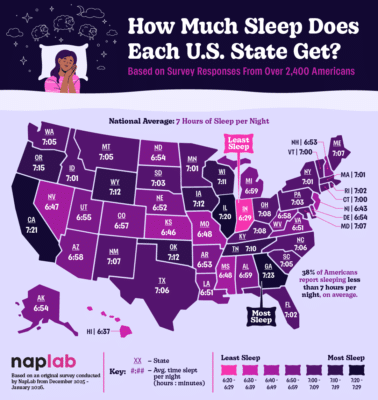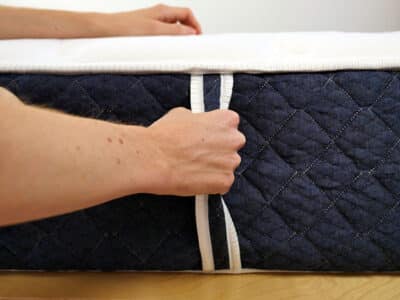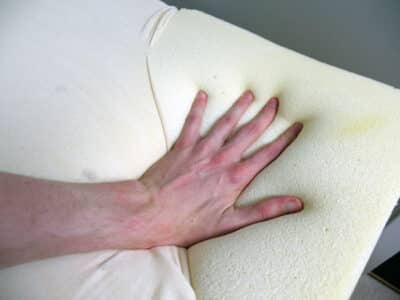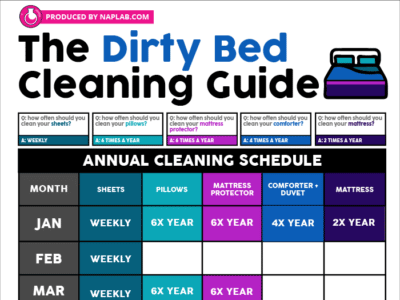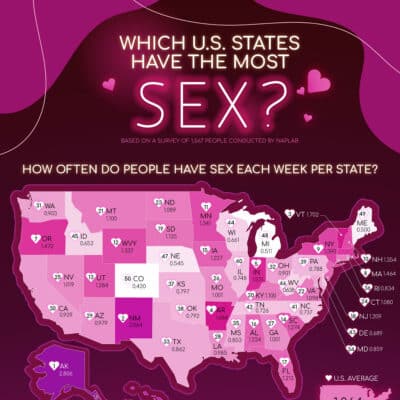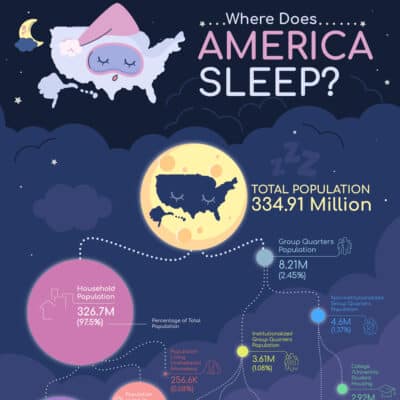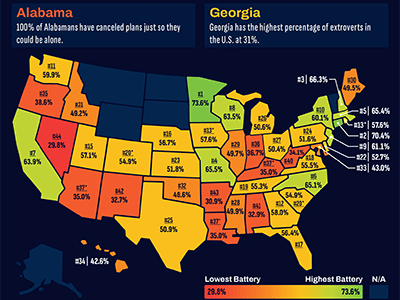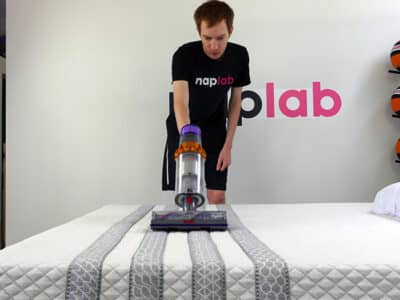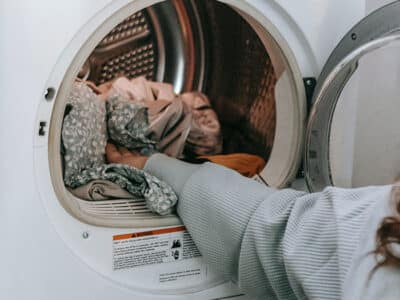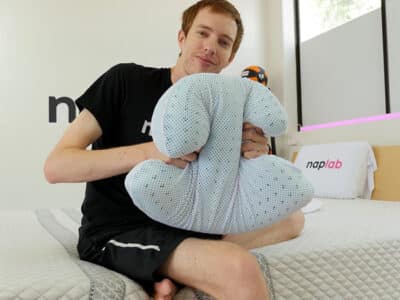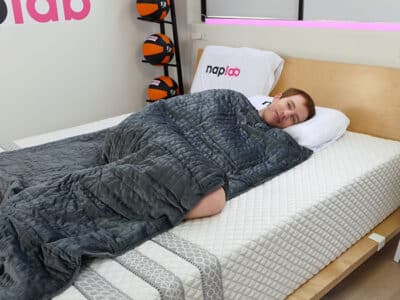Your Guide to Better Sleep
Our expert written & researched mattress & sleep guides will help you find a mattress, improve its performance, & give you better sleep.
Getting Started
How to choose a mattress?
Learn what mattress types are best for your sleeping position, body weight, & preferences.
What firmness do I need?
Your body weight and sleeping position impact your ideal firmness. Learn why.
How much does a mattress cost?
Don’t spend $5K+ on a mattress. Discover the right price for your new mattress.
Mattress Foundations
Every mattress needs a foundation. A low quality foundation can make even the best mattress perform terribly. Consequences of a bad foundation can include voiding your mattress warranty, decreasing mattress life, reducing support, and creating permanent indentations & sags much earlier.
Learn how to choose a high performance foundation that will give your mattress and body the support it needs.
Mattress Education
The materials within the mattress can dramatically alter the feel, support, cooling, and pressure relief. Not all materials are right for all sleepers. Learn the pros & cons of different mattress materials, and how to best care for your mattress.
Visual Guides
Discover the scary, surprising, and sensual secrets from the world of sleep with our visual guides and infographics.
Sleep Education
Have a great mattress, but still struggling to find restorative sleep? A small change to your schedule, your habits, and your sleep knowledge can make a big difference. Start sleeping better tonight.
How To Guides
All Mattress & Sleep Guides
Below you’ll find a complete list of all mattress, sleep, and bedding guides produced by the NapLab team. If you have a specific topic or question not covered, please reach out to us here.
Mattress Guides
Mattress Sizes & Bed Dimensions
Mattress Types
How to choose a mattress?
How often should you replace your mattress?
Mattress firmness scale
Mattress cover types explained
Mattress Buying Guide FAQs
How long do mattresses last?
How much does a mattress cost?
How to break in a new mattress?
How to dispose of a mattress?
How to make a mattress softer
How to make a mattress firmer
How to fix a sagging mattress
What is memory foam?
What is gel memory foam?
Latex vs. Memory Foam
Memory Foam vs. Hybrid
Memory Foam vs. Spring
Foam vs. Memory Foam
Gel Memory Foam vs. Memory Foam
Dunlop vs. Talalay Latex
Euro Top vs. Pillow Top
What is a hybrid mattress?
What is a plush mattress?
Should you rotate your mattress?
California King vs. King
Which mattresses use fiberglass?
Sleep Guides
How to sleep faster?
How to sleep better?
How to sleep on your side?
How to sleep on your back?
How long can you go without sleep?
Why is sleeping on your stomach bad?
What colors help you sleep?
How classic musical helps sleep quality
How to wake up early?
How to stay awake at work?
How long does it take to start dreaming?
How to Lucid Dream
What causes snoring & how can you stop?
How long does it take to fall asleep?
How to pull and all-nighter?
How long should you nap?
What happens when you sleep?
How many calories do you burn while sleeping?
What is white noise?
Sleep Wellness for All Ages
Benefits of Sleeping Naked
Benefits of Sharing Your Bed With a Dog
Benefits of Sleeping with Legs Elevated
What the brain does while sleeping
How PTSD Affects Sleep
ASD Sleep Guide
Sleeping Under the Stars – A Camping Guide
Puzzles to Help Relax Before Bed
Weighted Bed Blankets for Autism Therapy
Brand Guides
Sleep Number Alternatives
How much is a Sleep Number bed?
For Kids & Parents
Sleep & Memory – How a Restful Sleep Improves Learning
How much sleep do teenagers need?
How big a crib mattress?
Infant sleep patterns
Best Sleep Books
Bedtime Stories for Kids
Bedtime Stores: Ancient Mythology
Stories in the Stars: Myths & Legends
Importance of Sleep for Kids
Importance of Bedtime Reading for Kids
Foundation & Frame Guides
What is a mattress foundation?
Boxspring vs. Foundation
Boxspring vs. Slats
Do you need a box spring?
What is a platform bed?
What is a trundle bed?
Can you put a mattress on the floor?
High vs. Low Bed Frames
Bedding Guides
What is a mattress pad?
Mattress Pad vs. Mattress Protector
Mattress Pad vs. Mattress Topper
What does thread count mean?
What are microfiber sheets?
How often should you buy new sheets?
Polyester vs. Cotton Sheets
Quilt vs. Comforter
Duvet vs. Comforter
What is sateen?
Percale vs. Sateen
How to fold a fitted sheet?
How to make a bed?
What is a pillow sham?
Bedroom Blankets & Quilting
Cleaning Guides
How to clean a mattress?
How to clean a mattress stain?
How to get pee out of a mattress?
How often should you wash your bed?
How often should you wash your sheets?
How to wash your pillows?
How long should you keep a pillow?
How to wash a weighted blanket?
How to get rid of bed bugs?
The State of Sleep
Research & Statistics
110+ Sleep Statistics & Facts
Sleep & Stress Statistics
Mattress Advertising Statistics
Mattress Sales & Industry Statistics
Sleep Habits & Sleep Statistics
Infographics
Deadliest US Counties for Drowsy Driving-Related Fatalities
Loudest & Quietest Places to Sleep in America
Most Popular Boutique Hotels in the USA
US Cities with the Most Night Shift Workers
Which Companies Own Which Mattress Brands?
Which Countries Are Most Promiscuous?
Which US Cities are Most Likely to Give You Nightmares?
Which US States Last Longest in Bed?
Which US States Have the Most Infidelity?
Which US States Get the Most Sleep?
Which US States Get the Best Quality Sleep?
Which US States Have the Most Sex?
Which US States Have the Best Sex?
What are the most popular sex positions in each state?
Which US States Have the Highest & Lowest Social Battery
Which Part of the Body Turns Each State on the Most?
Where Does America Sleep?
Other Guides
Minimalism Bedroom Design
Dog Owner’s Guide to Healthy Sleep Habits
How much do dogs sleep?
How long do snails sleep?
Animals that hibernate
Sleep Habits of Different Animal Species
Sleeping Under the Stars & Planets
Sleeping Under the Stars: Stargazing & Astophotograhy Guide







